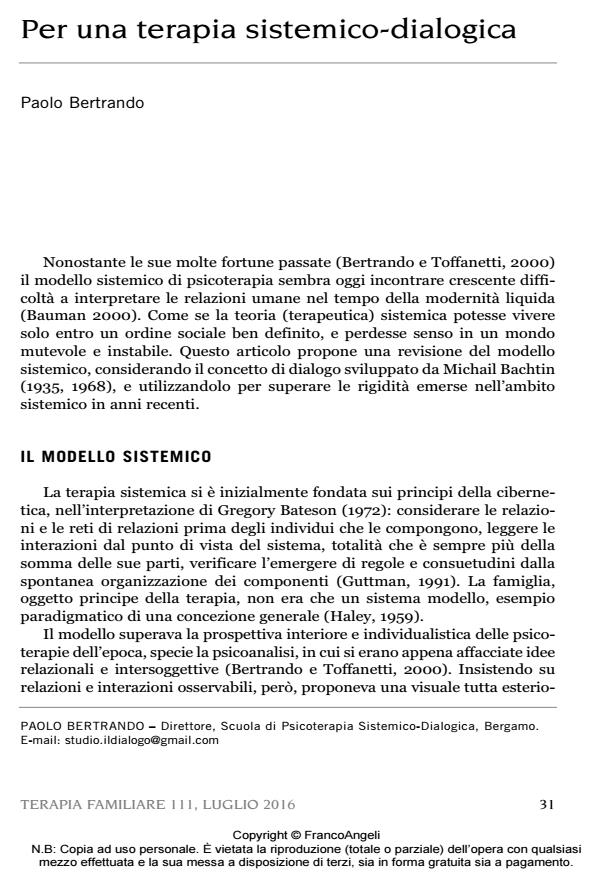Per una terapia sistemico-dialogica
Journal title TERAPIA FAMILIARE
Author/s Paolo Bertrando
Publishing Year 2016 Issue 2016/111
Language Italian Pages 18 P. 31-48 File size 122 KB
DOI 10.3280/TF2016-111003
DOI is like a bar code for intellectual property: to have more infomation
click here
Below, you can see the article first page
If you want to buy this article in PDF format, you can do it, following the instructions to buy download credits

FrancoAngeli is member of Publishers International Linking Association, Inc (PILA), a not-for-profit association which run the CrossRef service enabling links to and from online scholarly content.
Bakhtin-inspired ideas that led to the emergence of dialogic therapies are usually considered as incompatible with other. more traditional models. This article presents a possible integration of several dialogical ideas, with their acceptance of uncertainty and disorder, and systemic therapy, whose trust in an immanent systemic order of things has become, in recent years, more of a limit than a resource. through a comparison with the open dialogue approach, the article aims at clarifying the difference between a pure dialogical and a systemic-dialogical perspective, that is seen as more fitting with the contextual complexity of the world of today.
Keywords: Systemic therapy, therapeutic theory, theory of technique, open dialogue
- Theory and Practice of Systemic‐Dialogical Therapy Paolo Bertrando, Claudia Lini, in Australian and New Zealand Journal of Family Therapy /2019 pp.176
DOI: 10.1002/anzf.1365
Paolo Bertrando, Per una terapia sistemico-dialogica in "TERAPIA FAMILIARE" 111/2016, pp 31-48, DOI: 10.3280/TF2016-111003